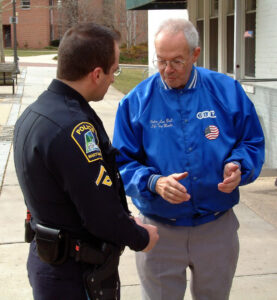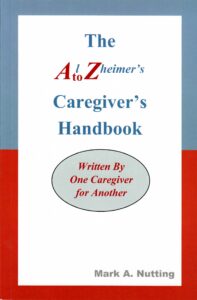In general, this time of year places so much pressure on people. Life stressors are generally magnified during the holiday season. Caring for your loved one who is living with dementia creates moments of stress, anxiety, anger, frustration, sadness, and grief for both of you. Certainly, the pressures and expectations of the holiday season only exacerbate these feelings. If you read my holiday blog from last year, you will find some recommendations
I’m hoping to provide some additional guidance this year on how you can actually enjoy moments throughout the holiday season.
Take a deep breath and reflect on what is most important. Consider your holiday traditions. It may be inviting 25 family members over for the holiday and you are responsible for everything. You may buy and wrap gifts, decorate, set the table, cook, serve, and clean. This is overwhelming for any individual. When caring for a loved one, it is time to modify traditions. Change can be challenging; however, attempting to continue your traditions and obligations only compound negative feelings and resentment. Any changes and modifications will depend upon your loved one. Ask yourself these questions: What comforts my loved one? What causes my loved one to feel stress and anxiety? What provides a sense of purpose to my loved one? What seems to be the best time of day for my loved one? Who and what creates positive feelings in my loved one’s day? The answers to these questions will provide guidance towards creating a plan.
Planning ahead always starts us out on the right foot. Take the time to jot down a list of things to be done during this busy time. Take a look at that list and one by one, really think about minimizing your responsibility for each one. Here is an example of what I mean:
- Shopping for gifts
- Can you shop online or have someone shop for you?
- Wrapping gifts
- Ask your loved one to help you and set them up for success using simple gift bags and lower your expectations
- Decorate the house
- Ask your loved one to help you, lower your expectations, and be forgiving of results that are accomplished by your loved one
- Plan the menu – cooking
- Decide to do a potluck this year and ask your family members to bring something
- Potluck alleviates you doing all the cooking. Choose one or two things you like to cook and ask your loved one to help. Remember to keep their tasks simple enough to create feelings of success and usefulness.
- Set the table
- Folding napkins; putting glasses and flatware on the table are easy tasks that your loved one can assist with and feel that he or she has a purpose
- Entertaining
- Prepare your family regarding your loved one. Educate them on how best to communicate with that person. Assure they are making efforts to include your loved one. Be aware that too many people, loud noise, and overstimulation may have negative consequences for your loved one. Have a quiet place in the house where your loved one can retreat to. Play the music your loved one prefers that is either utilized for soothing comfort or as a sing-a-long with family. If it’s nice out, take a walk outside.
- Clean up after dinner
- This is a perfect time to ask for help. Clearing the table; washing dishes; drying dishes; sweeping the floor; putting food in small containers; etc., will offer your loved one the opportunity to feel useful and included.
These are just a few ideas. Of course, every person and situation is unique. We need to think outside the box in order to create positive moments for everyone. The holidays create such demand on everyone. YOU, as the caregiver, need to take care of YOU and your loved one. If you truly do want to keep traditions, it is possible with modification. You must be flexible to the needs and changes in your loved one during the day and respond accordingly. It may be earlier than you planned on leaving a family gathering, but better to have a positive result from leaving early than a negative result from insisting on staying. If an event is important to you, then you should ask another family member or hire a private companion to be with your loved one so that you can fully enjoy and know that your loved one is safe and happy.
Throughout my career, I’ve experienced many caregivers who are just so overwhelmed. Typically, caregivers do not want to burden others by asking for help. That is the main cause for caregiver burn-out and ill health of the caregiver. If tradition is that you are the host, well maybe it is time for someone else to take on that job. Of course, family dynamics plays a huge role in all of this. Poor family dynamics seem to erupt when it comes to the caring of a loved one who is living with dementia. Do your best to choose the people in your life, whether family or friends, who truly want to help you. The saying is that “It takes a village to care for one person living with dementia.”
Wishing you and your loved one a very peaceful, happy, and healthy holiday season.







